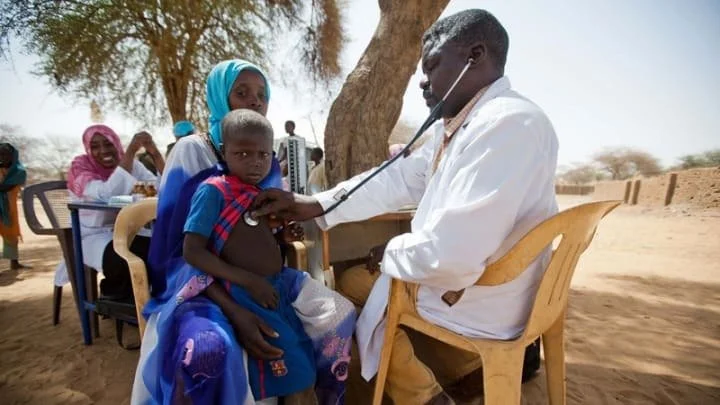Wealth over health: the role of UNICEF in the selective primary health care movement
Doctor Ismail Abdurrahman attends to a child at a temporary clinic for internally displaced persons in North Darfur, Sudan. Photo by: Albert González Farran / UNAMID / CC BY-NC-ND
Global health is a topic that has sparked many debates and discussions among world leaders in the past few decades. With the goal of improving health care globally, many organizations have come together in order to identify the best methods to achieve this complex goal. Some difficulties arose, notably the idea that the resources for health care are limited. Even though many experts believe that the scarcity of financial means is a fallacious idea, poor populations in developing countries remain forgotten and overlooked in the ongoing efforts in global health due to a lack of funding.
In accordance with this mindset, the preferred approach since the 80s has been to focus on selective primary health care (SPHC). Introduced by scholars Julia Walsh and Kenneth Warren, it was presented as an “interim strategy” for “an age of diminishing resources.” Concretely, this method consists of four main points following the GOBI acronym. It focuses on Growth monitoring, Oral rehydration therapy (use of a simple solution of salt and sugar effective for treating diarrheal diseases), Breastfeeding, and Immunizations. These solutions are not inherently bad, but many critics argued that it was like putting a Band-Aid on something that required surgery. Indeed, these low-cost, high-impact interventions did not do anything to solve the existing problems in health systems of developing countries, thus not targeting suffering and death in the long-term. They also disregarded the leading causes of death in poor regions, such as acute respiratory infections.
Now, it is common knowledge that children are some of the most vulnerable populations, especially when it comes to health. It therefore comes to a surprise to know that UNICEF was one of the most prominent leaders in the SPHC movement by aggressively pushing for a GOBI approach on the international scene. This can notably be attributed to the wishes of Jim Grant, executive director of UNICEF from 1980 to 1995. Wanting to focus on delivering disease-specific technical interventions, he raised immunization rates for children in developing countries to 80 percent, but completely disregarded the need for community-based health care. This approach was justified by the reality of constrained resources.
Once again, wealth was prioritized over the health of poor and vulnerable populations. It is therefore legitimate to ask ourselves: when will health care become a priority for world leaders? And when will the number of lives saved become more important than the number of dollars saved?
Source: "Reimagining Global Health: An Introduction" by Paul Farmer, Arthur Kleinman, Matthew Basilico, Jim Yong Kim.
